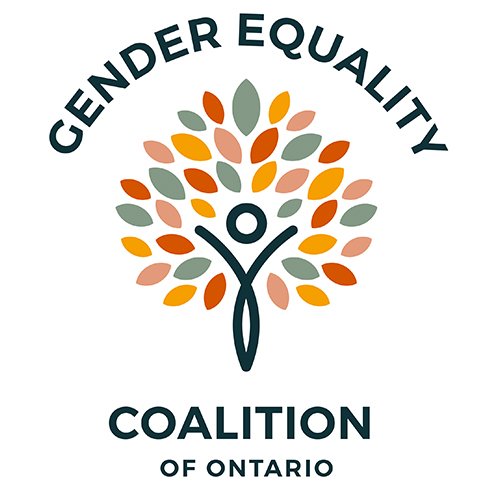Yes, Domestic Violence is a Workplace issue. How to get the most out of Bill 168…
Domestic violence (DV), Intimate Partner Violence (IPV) or Family Violence (FV), however you choose to define the issue, is an epidemic in our community and a pervasive issue that affects individuals and families in our community. However, what many people may not realize is that it also has a significant impact in the Workplace. In Ontario, the government has recognized this issue and implemented Bill 168, which requires employers to have policies and procedures to address domestic violence in the Workplace. In this blog post, we will explore why domestic violence is a workplace issue in Ontario and how employers can and should get the most out of Bill 168 to create a safe and supportive work environment for all employees.
Unveiling the Reality: Domestic Violence is a Workplace Issue.
Domestic violence is not limited to the confines of the home; it extends its reach into the Workplace. The Workplace can be a refuge, the only safe place for some folks, and is, at times, the only place someone experiencing DV can access the support needed safely. This is a reality that many people may not be aware of, but it should not be ignored. In Ontario, the government recognized the gravity of this issue and implemented Bill 168 in the hopes of creating a tool to compel Employers to address DV in the Workplace.
Why is domestic violence a workplace issue in Ontario? The answer lies in its impact on employees and their ability to perform their jobs effectively. Employees who experience DV may face physical, emotional, and psychological challenges that can hinder their productivity and overall well-being. Moreover, the presence of domestic violence in the Workplace can also affect the safety and morale of other employees. In 2014, Stats Canada's study reported that DV costs Canadians over $78 million annually. The CLC report can be found here.
As a starting point to combat this issue, Bill 168 requires employers to have policies and procedures in place to address domestic violence. These policies aim to create a safe and supportive work environment for all employees and to ensure that they receive the necessary support and resources when facing domestic violence situations.
In the following sections, we will delve deeper into understanding Bill 168 and the practical steps employers can take to harness its full potential.
Bill 168, in my opinion, is the first of hopefully many pieces of legislation in Ontario that will be implemented to address DV in the Workplace.
The policies required by the bill play a vital role in creating a safe and supportive work environment for all employees. They provide guidelines for recognizing signs of domestic violence, reporting incidents, and offering resources and support to affected employees, as well as creating an opportunity for workplaces to have broader conversations about DV, to know who is suffering and in need of support for themselves or a loved one.
By requiring the implementation of a DV policy, employers will protect the individuals directly involved and promote a workplace culture that does not tolerate violence or harassment. It powerfully conveys to employees that their safety and well-being are valued and protected.
Understanding the significance of Bill 168 is crucial for employers as it empowers them to address domestic violence in the Workplace proactively. It ensures that appropriate measures are in place to protect employees and provides a framework for supporting those affected. By embracing and implementing Bill 168, employers can make a difference in the lives of their employees and create a safer and more supportive work environment for all.
Practical Steps: Harnessing the Full Potential of Bill 168 for a Safer Workplace
When it comes to harnessing the full potential of Bill 168 for a safer workplace, employers can take several practical steps. Firstly, developing and implementing a comprehensive domestic violence policy is crucial. This policy should outline the organization's commitment to addressing domestic violence in the Workplace and provide guidelines for reporting incidents and accessing support resources. Additionally, employers should educate their employees about the policy and raise awareness about the signs of domestic violence. Training programs and workshops can be organized to ensure employees can identify and respond appropriately to these situations.
Furthermore, creating a culture of open communication and support is essential. Employers should encourage employees to come forward with any concerns or experiences related to domestic violence and ensure that these reports are taken seriously and handled confidentially. Resources such as helpline numbers, counselling services, and legal assistance can make a significant difference. Regularly reviewing and updating the domestic violence policy, conducting awareness campaigns, and promoting a zero-tolerance approach to violence and harassment are additional steps that employers can take to fully harness the potential of Bill 168 and create a safer workplace for everyone.
What can you do?
If you want to make a difference and contribute to creating a safer workplace, there are several actions you can take. Firstly, familiarize yourself with your company's Domestic Violence policy and understand its guidelines and resources. If your Workplace doesn't have a policy, advocate for its implementation. You can bring this up with your HR department or management and emphasize the importance of addressing domestic violence in the Workplace, or lastly, call the Ministry of Labour.
Additionally, educate yourself and your colleagues about the signs of domestic violence and how to respond appropriately. Awareness is vital to creating a supportive environment for those affected. Be an ally and offer support to anyone who may be experiencing domestic violence. Show empathy, listen non-judgmentally, and let them know about available resources such as helpline numbers, counselling services, and legal assistance.
In the words of Gandhi, we must be the change we wish to see in the world. I wish to see the end of the Epidemic that is Domestic Violence.
- Dani Bartlet
Executive Director the Gender Equality Coalition of Ontario

